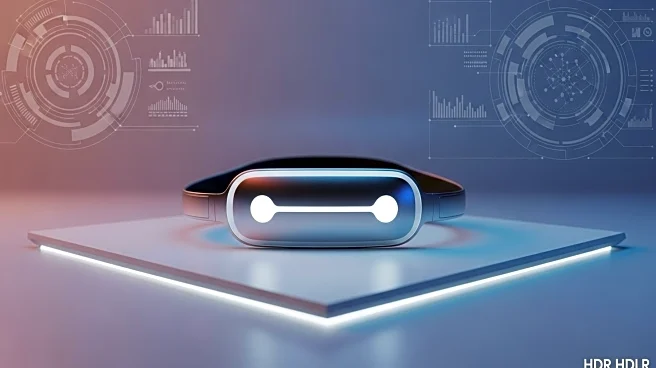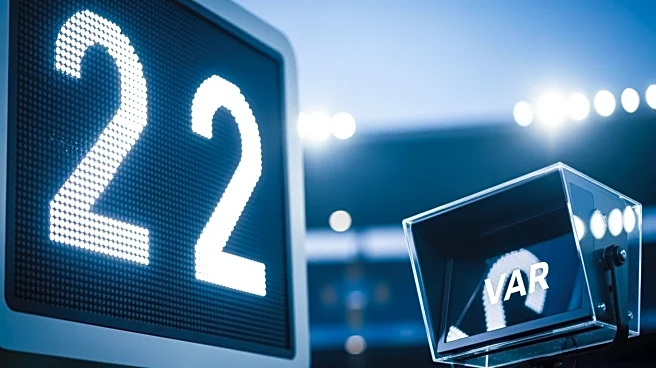What's Happening?
Samphire Neuroscience, a female-founded neurotech company, has launched a new wearable device called Lutea in the United States. The device is designed to alleviate premenstrual syndrome (PMS) symptoms by using noninvasive brain stimulation techniques. Lutea targets the prefrontal cortex, a brain region associated with emotional control and pain perception, to help women manage mood swings and mental fogginess during their menstrual cycle. The headband-like device is worn for about 20 minutes daily, particularly in the days leading up to menstruation, and is accompanied by an app that customizes usage based on individual cycles and symptoms. Previously launched in the UK under the name Nettle, the device has received industry awards for innovation in women's health.
Why It's Important?
The introduction of Lutea in the U.S. market represents a significant advancement in women's health technology, offering a drug-free alternative to managing PMS symptoms. This development could potentially benefit millions of women who experience emotional and physical discomfort during their menstrual cycles. By focusing on brain science rather than medication, Lutea provides a novel approach to symptom management, which may appeal to those seeking holistic and non-pharmaceutical solutions. The device's ability to integrate neuroscience into everyday life without stigma or side effects could lead to broader acceptance and usage, impacting the women's health industry and encouraging further innovation in neurotechnology.
What's Next?
Samphire Neuroscience is currently accepting preorders for Lutea at a discounted price, with plans to expand its reach in the U.S. market. As the device becomes more widely available, it may prompt further research and development in noninvasive brain stimulation technologies for other health conditions. The company's approach could inspire similar innovations, potentially leading to new products that address various aspects of women's health. Stakeholders, including healthcare providers and women's health advocates, may closely monitor the device's reception and effectiveness, influencing future healthcare practices and policies.
Beyond the Headlines
Lutea's launch highlights the growing trend of personalized health technology, where devices are tailored to individual needs and cycles. This shift towards customization in healthcare could lead to more effective treatments and improved patient outcomes. Additionally, the device's focus on brain science underscores the importance of understanding neurological factors in health conditions traditionally managed through medication. This approach may encourage further exploration of brain-based solutions for other health issues, potentially transforming the landscape of medical treatment.









